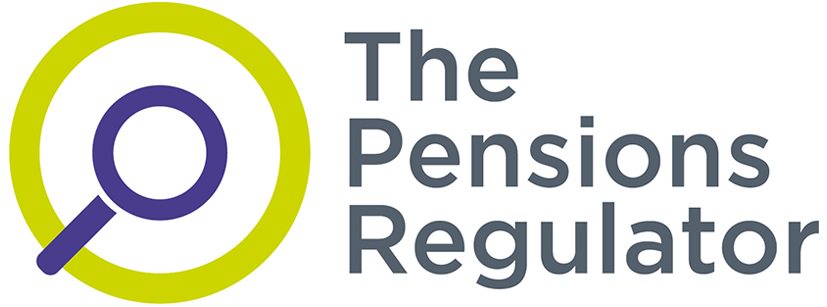The Pensions Regulator (TPR) has published a year two update on its three-year corporate plan (2024–2027), warning that the pensions landscape continues to undergo rapid changes amid significant uncertainty in both domestic and global economic conditions.
Despite persistent market volatility, the update highlighted that consolidation within the pensions industry has continued, alongside a shift toward a more concentrated trustee market.
TPR also noted signs of innovation across the sector, such as the beginnings of harnessing data and AI to improve outcomes and processes for savers.
Looking ahead, TPR reaffirmed its core priorities, which included protecting savers’ money, enhancing the pensions system, and supporting innovation that delivers better results for savers.
The regulator plans to achieve these aims by raising the standard of trusteeship and investment governance across schemes.
It also intends to broaden its market oversight approach and unlock the potential of data and technology to strengthen the pensions sector.
Indeed, a key part of this strategy involves developing a new framework for improving the quality of trusteeship.
TPR stated that this will help shape its compliance and oversight activities in the years to come.
The regulator also confirmed that it will continue to ensure schemes are ready for pensions dashboards, with connection activity ramping up throughout the year.
This work will be supported by an extensive programme of communications, engagement with regulatory partners, and updates to guidance.
Meanwhile, TPR emphasised the importance of its partnership with the Department for Work and Pensions (DWP) and the broader regulatory community, particularly in implementing key reforms through the forthcoming Pension Schemes Bill 2025.
In the defined benefit (DB) space, TPR plans to evolve and enhance its supervisory approach, building on its experience with master trust and defined contribution (DC) scheme supervision.
This work will support the implementation of the new DB funding regime, enabling trustees and employers to manage long-term risks more effectively.
TPR also intends to lead the Pension Scams Action Group, working with partners across the industry to tackle scams and protect savers from financial harm.
In a joint statement accompanying the update, TPR chair, Sarah Smart, and chief executive, Nausicaa Delfas, reflected on the "significant progress" made through automatic enrolment, which has enabled 11 million more people to start saving for retirement over the past decade.
However, they cautioned that the next challenge is ensuring these savers accumulate sufficient wealth to meet their needs in later life.
The statement acknowledged that pension schemes are operating in an increasingly uncertain investment environment, and said it expected volatility to persist “for some time”.
Against this backdrop, the regulator said that its focus will be on ensuring that all schemes maintain high standards of investment governance, with trustees making informed and prudent decisions on behalf of savers regardless of market conditions.
Meanwhile, Smart and Delfas described the Pension Schemes Bill as an “important first step” towards creating a more resilient pensions system that works for everyone.
They said the reforms will help consolidate the market into fewer, larger pension schemes with the potential to improve governance practices, grow savers’ retirement pots, and potentially support broader economic growth in the UK.
The regulator expects this shift towards larger schemes to shape much of its work over the coming year, with a focus on ensuring that government policy is effectively implemented and that the market is prepared to capitalise on the opportunities consolidation presents.
TPR also plans to support innovation through the creation of a new innovation support service, which will help schemes bring new products to market more safely and securely.
In addition, the regulator stated that it will continue to implement its digital, data, and technology (DDaT) strategy, streamlining regulatory reporting and encouraging the industry to adopt open data standards.
Smart and Delfas stressed that they were committed to investing in their own people and systems to ensure their interventions added value, reduced unnecessary burden, and remained fit for the future.
This included embedding a culture in which a saver-outcome focus runs through all of TPR’s activities.
In conclusion, the joint statement said the corporate plan sets out how TPR will deliver better outcomes for the millions of people who rely on pensions to support them in later life.
“The pensions landscape is changing, and the regulator is committed to changing with it,” it added.
Latest News
-
Govt urged to prioritise pension policy stability in Spring Statement
-
Just Group underlying operating profit falls by 39%
-
Employers warned modest pension defaults risk worsening adequacy gap
-
Aegon updates modelling tool to help members benchmark retirement needs
-
News in brief - 27 February 2026
-
PPF levy to remain at zero for 2026/27
Private markets – a growing presence within UK DC
Laura Blows discusses the role of private market investment within DC schemes with Aviva Director of Investments, Maiyuresh Rajah
The DB pension landscape
Pensions Age speaks to BlackRock managing director and head of its DB relationship management team, Andrew Reid, about the DB pensions landscape
Podcast: From pension pot to flexible income for life

Podcast: Who matters most in pensions?

In the latest Pensions Age podcast, Francesca Fabrizi speaks to Capita Pension Solutions global practice leader & chief revenue officer, Stuart Heatley, about who matters most in pensions and how to best meet their needs
© 2019 Perspective Publishing Privacy & Cookies










Recent Stories